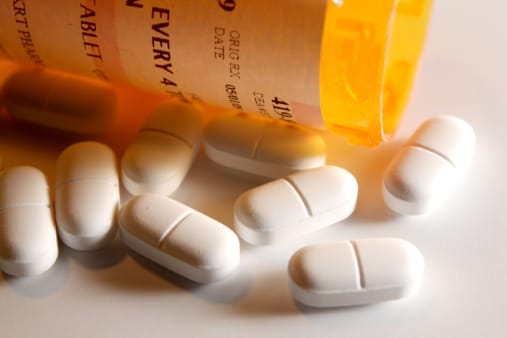If you or someone you care about is facing challenges with cocaine use, please know that you’re not alone—and help is available at Promises Behavioral Health companies like The Right Step. Cocaine is a powerful stimulant that many use recreationally, but for individuals struggling with attention-deficit/hyperactivity disorder (ADHD), its effects on brain chemistry can create an even stronger pull. Understanding the link between ADHD and cocaine abuse can be a critical step toward healing.
At The Right Step, our compassionate team can support you every step of the way. They are ready to answer your questions about our specialized cocaine addiction treatment options and guide you toward recovery with evidence-based care. Together, we can take the first step toward a brighter future.
What To Know About Cocaine Abuse
Cocaine is a powerful stimulant that impacts the central nervous system (CNS), speeding up communication between the brain and body. It’s derived from the leaves of the coca plant, native to South America, where its effects have been known for thousands of years. Today, in the United States, cocaine is often refined into a white powder and used recreationally for the short-lived euphoria and energy it can produce. Some snort it, dissolve it for injection, rub it on their gums, or smoke its crystalline form, commonly known as “crack” or “rock.”
While some may perceive cocaine use as harmless, it’s important to recognize the serious health risks and psychological challenges it can cause. These can include:
- Intense irritability, mood swings, or paranoia
- Sensitivity to light, sound, or touch
- Headaches and sexual dysfunction
- Physical damage, such as lung damage from smoking or nasal damage from snorting
- Increased risk of infections like HIV or hepatitis for those injecting it
- Tolerance and dependence, leading to needing more of the drug to feel the same effects
Long-term effects can include memory problems, slower reaction times, and bowel damage for those who swallow it. At its core, cocaine use can take an immense toll, but it’s important to know that recovery is possible.
How Are ADHD and Cocaine Abuse Connected?
People struggling with attention-deficit/hyperactivity disorder often face a higher risk of developing cocaine use disorder, a challenge rooted in brain chemistry.1 Living with ADHD means navigating difficulties like reduced focus, hyperactivity, and impulsivity—symptoms largely tied to lower dopamine activity in the brain. Dopamine, an essential neurotransmitter, plays a key role in motivation, pleasure, and the sense of reward we feel when accomplishing a goal.
Effects of cocaine abuse on the brain can include disrupting the natural balance of dopamine. Over time, regular cocaine abuse can deplete the brain’s supply of dopamine and create an overwhelming need to continue using the drug to feel any sense of happiness or reward. Cocaine temporarily boosts dopamine activity, creating a euphoric high for most people. For those with ADHD, the effects can be quite different. Instead of a rush, cocaine may bring feelings of calm and improved focus—something they may deeply desire. This aligns with the fact that many prescription ADHD medications share chemical similarities with cocaine or belong to the same stimulant class, such as amphetamines.
It’s important to emphasize that cocaine is not a safe or effective treatment for ADHD. Its significant health risks and toxicity outweigh any temporary effects it may provide. However, understanding why this drug might appeal to those with ADHD sheds light on the struggles they face. If you or someone you care about is living with ADHD and battling cocaine use, know that there is hope. Effective treatments and medications are available, and recovery is always possible with the proper support and care.
How Can Dual Diagnosis Treatment Help?
At The Right Step, we understand the complexities of addiction and co-occurring disorders like ADHD. Our integrated, personalized approach prioritizes treating both conditions concurrently to give you or your loved one the best chance at lasting success. This can involve evidence-based therapies like cognitive-behavioral therapy (CBT) to address patterns of thinking and behavior, individual and group counseling for emotional processing, medication management for ADHD symptoms, and holistic treatments like yoga or acupuncture.
You deserve a life free from the chains of cocaine use disorder. Contact us today to learn more about our compassionate team and specialized treatment options tailored to your unique needs. With help from The Right Step, you can regain control and live a fulfilling life in recovery. You are not alone, and we are here to support you every step of the way.
Connect With The Right Step and Get the Help You Deserve Today
At The Right Step, we understand that facing both mental health challenges and substance abuse can feel overwhelming, but recovery is possible—and you don’t have to do it alone. Our dual diagnosis approach provides compassionate, expert care to address mental health and substance abuse simultaneously, offering the best path toward lasting recovery. Whether it’s co-occurring attention-deficit/hyperactivity disorder and cocaine dependence or another challenge, our team is here to support you or your loved one every step of the way.
Contact our team online or call 17135283709 to explore how we can help. With treatment centers in Texas, we are ready to welcome you into a community that believes in hope, healing, and a brighter future.
Footnote:






